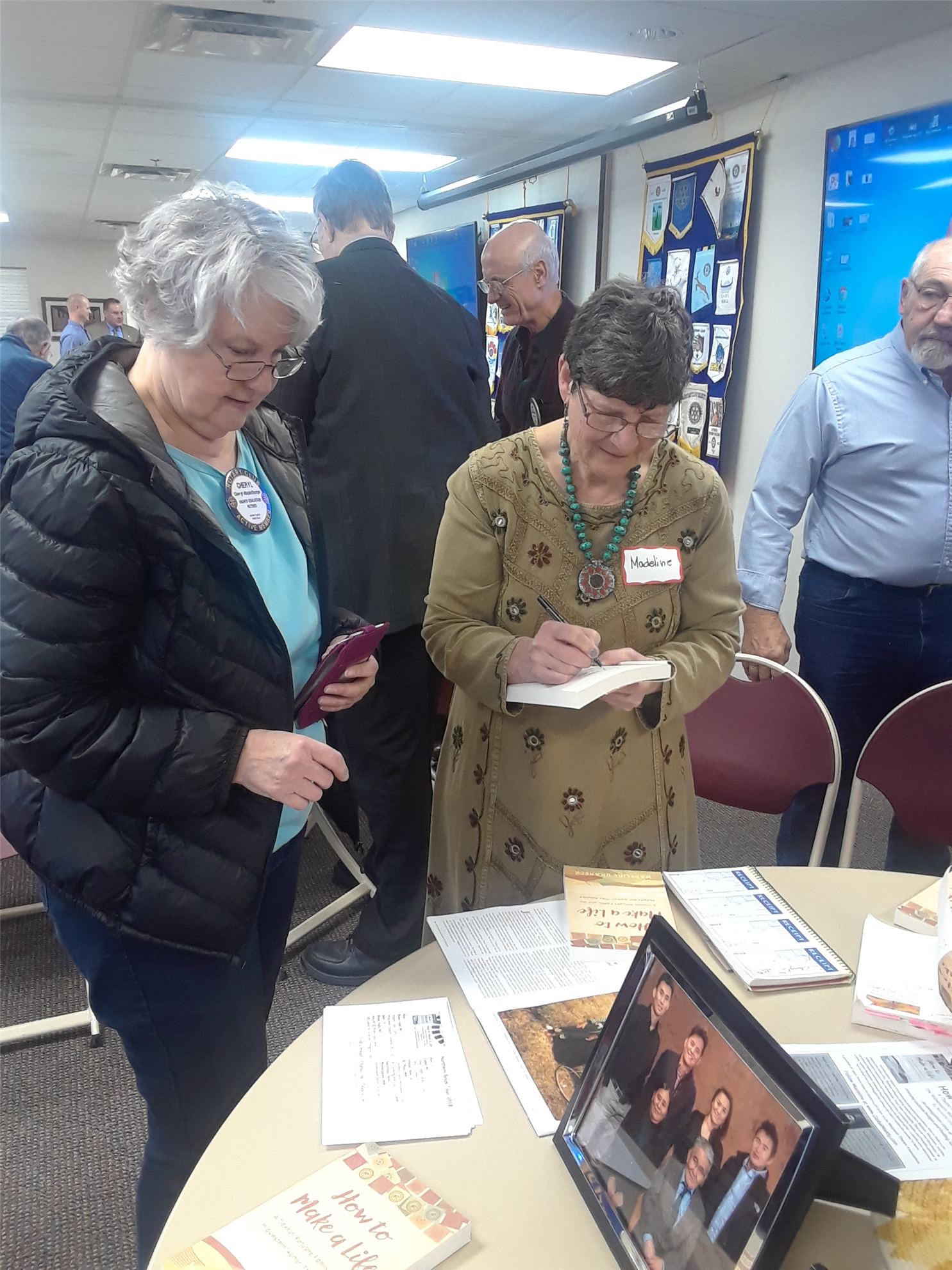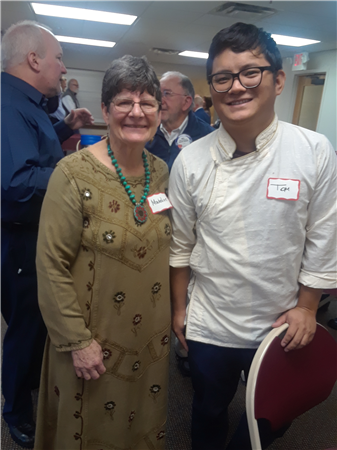Madeline Uraneck is an educator and writer who has visited sixty-four countries through her role as International Education Consultant for the Wisconsin Department of Public Instruction, several Peace Corps assignments, and her passion for world travel. She greeted the group with "tashi deleke," which translates to "auspicious blessings." Madeline, along with Tenzin Tamdin, a former Tibetan refugee who immigrated to the U.S., shared their wonderful story of friendship with the club.
Madeline Uraneck is an educator and writer who has visited sixty-four countries through her role as International Education Consultant for the Wisconsin Department of Public Instruction, several Peace Corps assignments, and her passion for world travel. She greeted the group with "tashi deleke," which translates to "auspicious blessings." Madeline, along with Tenzin Tamdin, a former Tibetan refugee who immigrated to the U.S., shared their wonderful story of friendship with the club.
When Madeline Uraneck said hello to the Tibetan woman cleaning her office cubicle, she never imagined the moment would change her life. After learning that Tenzin Kalsang had left her husband and four children behind in a Tibetan refugee settlement in India to try to forge a better life for them, Madeline took on the task of helping her apply for U.S. visas. When the family reunited in their new Midwestern home, Madeline became swept up in their lives, from homework and soccer games to family dinners and shared holiday traditions. By reaching out, she found more than she bargained for--a family who welcomed her as their own and taught her more than she offered them.
Madeline talked about the life of people who are forcibly displaced from their land. School, work and daily life is disrupted, and people and cultures suffer. Once the actual trauma of crossing in a boat or over mountains is done, refugees must meld their lives into a new culture.
Most refugees want to return to their homelands, but that is not always possible.
Madeline and Tenzin Tamdin recounted their stories and how they came together. Madeline met Tamdin's mother at her office, helped her apply for citizenship and later, for permits for her family to come to America. This process takes years, and Tamdin's mother was in the U.S. for five years before the family could join her.
Tamdin was 13 when he came to the U.S., and he said his first impression and everything he knew about America was that there was junk food and lots of toys. As a child, "you don't think about anything other than that," he said. He shared the challenges of finding a national and cultural identity while he was growing up between three worlds: Tibetan, Indian and American.
Madeline talked about her ongoing relationship with Tenzin's family, and how many times, families who sponsor immigrants don't stay involved in their lives. Tamdin said that Madeline's involvement in his and his siblings' lives was a very positive influence. He joked that when she would come to visit, the children would turn the TV off and make sure she "caught" them reading.
"Now that I'm older, I realize that I had to learn that being American is not about having everything, it is about giving back," said Tamdin. "This is what she has taught me. To give back to people who need it."
To read more about Madeline's story, check out her book "How to Make a Life," an immigration story of crossing cultural bridges and finding family.

